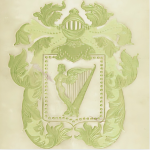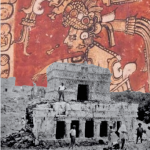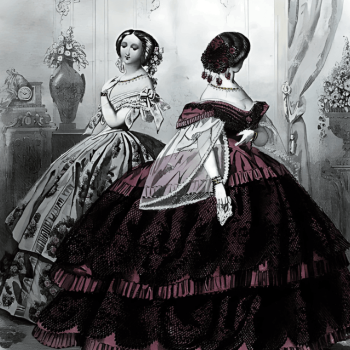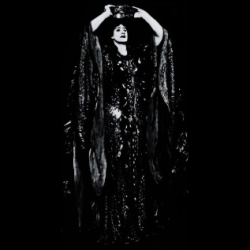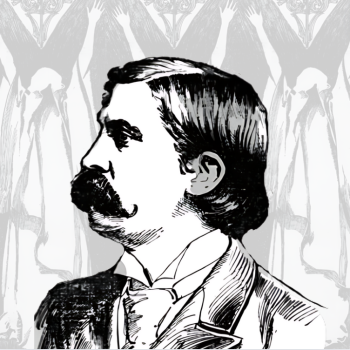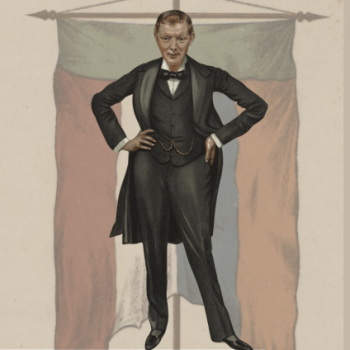“Mr. George Bernard Shaw is on the platform meeting a friend who has come by the same boat,” said the reporter from The Pall Mall Gazette to Mark Twain. It was June 18, 1907, and Twain had gone to England to receive his honorary degree from Oxford University.
“Yes, I know,” replied Twain. “I want to see him.”
“In the meantime can you tell us what you think of Mr. Shaw?”
“I never give an opinion,” Twain replied, “unless I have studied and formed an opinion from my own deduction—and not from anyone else’s.”
While one of the party went in search of Shaw at the Tilbury Station the correspondent from The Pall Mall Gazette asked Twain whether he was engaged with writing any new work.
“I don’t write anything now,” replied Twain, “but I dictate my autobiography for one or two hours a day, five days in the week, and that is sufficient to keep me alive and keep the blood in circulation.”
“When will it be finished?”
“Just when they send for the undertaker, and not any sooner.”
“We all hope that that will be very, very far off.”
“Well, I don’t know. Palmists, clairvoyants, seers, and other kinds of fortune-tellers all tell me that I am going to die, and I have the utmost admiration for their prediction,” Twain said with a wink. “Perhaps they would convince me a little more of its truth if they told me the date. But I don’t care so much about that. It was enough to know, on their authority, I was going to die. I at once went and got insured.”
Shaw, at this point, had been found. The American humorist and the English dramatist, filled with mutual admiration, heartily shook hands—both clearly pleased to finally meet.
“While I have been waiting,” said Shaw, “the representatives of the press have been asking me whether you were really serious when you wrote ‘The Jumping Frog.’”
Twain laughed a mighty laugh,
“I hope I have answered correctly in telling them,” Shaw said with a smile, “that I thought it was meant to be amusing.”
“Why—you’re even worse than the reporters,” said Twain genially as a photographer darted in front of him.
“Show us that characteristic smile”
“My characteristic smile? Well, I usually charge extra for that. But here you are.”
Twain removed his hat and revealed a crown of snow-white hair, and as he stood there on the pier, his countenance suggested something of a prophet more so than a humorist—but those two offices, of course, are not mutually exclusive.
“How many cigars a day do you smoke, Mr. Clemens?”
“As many as I can get for six dollars a barrel.”
“For a man of my age rest is essential,” Twain said, as the conversation progressed. “I believe in giving way to the body as soon as it feels tired, just as I obey my eyes when they suggest sleep. For dinner, in the evening I always dress, but 11 o’clock generally sees me in bed, where I read and smoke till, perhaps 1 o’clock in the morning. And what am I reading? Just the five or six books I’ve been reading all my life.”
“Are you as fond of encyclopedias as ever?”
“Just as fond.”
“And when are you coming to London again?”
“As soon as you offer me another degree.”
“Going to Italy anymore?”
“No. I shan’t go to Italy. Since my last attempt to reform the Italian language, I understand there have been difficulties with the police.”
“What do you think of the great pageants?”
“I have never seen one.”
“But what do you think of the idea?”
“Oh, the idea is a good one. An excellent idea!”
“Can’t you have them in America at all?”
“Why, yes. In 1876, you know, they had a series at the hundredth anniversary of the Declaration of Independence, and then, just as it happened here, any town or place that had some events in its history that connected it with the American Revolution, they all followed one after the other. That was in our hundredth year—but you are in your thousands. It is good, you know, to revive history and impress the people. It does not take us long, for there is not much of it.”
“Mr. Clemens,” one of the younger journalists solemnly asked, “do you think the world’s improving?”
“Well, now, that’s difficult to answer.” Twain puffed away on his cigar as he contemplated the state of the world. “I think I can safely say this,” Twain slowly answered, “my latest impressions of it are better than my first.”[1]
On June 22, the fourth day after his arrival, Twain attended the Garden Party of King Edward VII at Windsor Castle. There were eighty-five hundred guests, and Twain was as much a figure as any member of the royal family. After the ceremonies ended, he told his old friend, Bram Stoker, all about the event at Brown’s Hotel, “the only subdued and homelike inn left in London,” according to Twain.
“Not on your life,” said Twain in pajamas and dressing gown, lolling in his big armchair. “Not if you bring the Bath Club right into this suite so I don’t have to shock my good English friends by painting the town blue skipping across Dover Street in my dressing gown,” he said, winking at Stoker. “By the way, my daughter Clara bought me this,” he said, holding up the skirts of his bathrobe with both hands. “A most refined girl! If she wasn’t, would she have sent me a wire like this?” He handed a Stoker a telegraph that read: “Much worried by newspapers. Remember proprieties.”
“And what did you answer?” asked Stoker.
“None of your business! You are getting as fresh as a reporter,” snapped Twain, with mock severity.
The subject turned to the topic of Germany’s Kaiser Wilhelm.
“I don’t care whether Annie Besant and William Jennings Bryan occupy lofts in his upper story,” said Twain. “I had promised Von Versen not to talk about that jamboree, and the worms, if interested will have to turn burglars, and jimmy my brain cells, where memories of the banquet are stored, for I swear I’ll leave no skeleton key.”
“Pshaw! You are still sore because Willie wouldn’t let you get in a word edgewise,” said Stoker.
“Man alive!” cried Twain.
“And did you like the British better than the Berlin brand of king?”
“They let me do a lot of talking at Windsor,” evaded Twain. “I like these folks immensely. Ed is a manly fellow, despite his Hoboken accent—no wonder he fought with his ma, who wore the pants while Albert was alive, and tried to impose her German policies on her successor-to-be. Ed recalled an indigestion which we both entertained at Homburg, at the Elizabeth Spa there, which is more kinds of pure salt than Kissingen even. The blonde Fräulein who had sold us the liquid caviar advised walking it off, and as stomachache inclines to democracy the same as toothache, I didn’t mind tramping with Ed, though I fancied that I would hear more about royal inner works than was decent for a minister’s son.”
“Did you tell the King any yarns?” asked Stoker.
“Well, he referred to my giving out that interview about the news of my death being greatly exaggerated and was pleased to call it funny. When I said that everybody more or less was given to overstatement, Ed commented dryly, ‘Especially my nephew of Germany.’ After that Ed turned me over to the Queen and a tribe of Princes and Princesses, who all seemed much relieved when I solemnly informed them that I had no intention of buying Windsor Castle this trip. Then we talked commonplaces until Alexandra commanded me to put on my hat lest I catch cold which gave me a chance to tell about Will Penn. Penn, you’ll remember, insisted on wearing his hat everywhere. When he saw King Charles, the second of his name, doff his chapeau at a court function, the future Philadelphian inquired: ‘Friend Charles, why dost thou take off thy lid?’ ‘Because,’ answered Charles, ‘it is customary at court that only one may remain covered in the King’s presence.’ I was ashamed, cracking that chestnut, but Alexandra and the youngsters seemed to think it a real side-splitter to judge by the noise they made.”
“Nice people,” said Stoker.[2]
On June 22, Twain paid a visit to Dorothy Tenant Stanley, the widow of his old friend, the explorer, Henry Morton Stanley. She was as eager as ever, and as free from any concealment of her feelings as she was when he first met her, “a proud and happy young bride, so many years ago.” Stanley had been dead for three years and a half, and Twain could tell that all of her days and nights were spent in worship of him, and he believed that Stanley was “almost as present to her as he was in life.” Dorothy was an intense Spiritualist and had long lived in the “atmosphere of that cult.” Dorothy’s widowed sister, Eveleen, “a chief among spiritualists,” was the wife of Frederic Myers, the late president of the British Society For Psychical Society. “Lady Stanley wanted to convert me to her beliefs and her faith; and there has been a time when I would have been eager to convert her to my position, but that time has gone by. I would not now try to unsettle any person’s religious faith, where it was untroubled by doubt,” Twain would say. “I have found it pretty hard to give up missionarying—that least excusable of all human trades—but I was obliged to do it because I could not continue to exercise it without private shame while publicly and privately deriding and blaspheming the other missionaries.”
The following day, Sunday, June 23, Twain, Eveleen Myers, and Sir William Crookes (the Spiritualist who discovered thallium,) paid a visit to Basil Wilberforce, the Archdeacon of Westminster.
“Come into my library,” said Wilberforce in an undertone when they arrived. “I have something to show you.”
In the library, Twain was presented to Wellesley Tudor Pole, of Bristol, a plain-looking man whose appearance suggested an English tradesman.
“Mr. Pole,” said Wilberforce, “show to Mr. Clemens what you have brought here.”
Pole brought forth a wooden box (a humble and ordinary sort) and took from it a loose bundle of white linen cloth, and carefully placed it in Wilberforce’s hands. The Archdeacon proceeded to unroll the long strip of white linen—not hastily, but impressively and with cautious pains cloaked in pervading silence. At last an ancient-looking relic was produced, a silver saucer that was overlaid with green glass. Wilberforce handed it to Twain.
“What is it?” Twain asked.
“It is the Holy Grail!” Wilberforce impressively declared.
Twain was naturally startled.
“You may well start, but it’s the truth,” said Wilberforce. “That is the Holy Grail!”
Then Wilberforce gave an explanation. Tudor Pole, as he was known, was a grain merchant who had developed some sort of clairvoyant power. One evening, in 1902, Pole was returning home when an “internal force, of an undefinable kind, held him for a time motionless in the street.” During this short interval, when all of his faculties seemed suspended, he received an “impression,” or vision that he called a “waking dream,” that by a small rivulet and a pond near Glastonbury Abbey a sacred relic was buried. Time passed, and he did not pay much attention to the strange impression. It soon returned, along with a distinct voice “in his brain” that spoke repeatedly, and strongly, always reminding him that a “holy relic was waiting near Glastonbury for him to discover it.” His occupation prevented him from going to Glastonbury to search for the relic, so he sent his sister with two other ladies known to him, one of whom was clairvoyant. The three ladies identified the spot with the pool and the spring at a spot known as Bride’s Hill. Here they discovered a little cross, a gold chain, and a ruby under a large stone which had protected it from human observation. They soon found, intact, the sacred vessel that had been indicated by Pole’s inward voice. At the same time, another dreamer, Dr. Goodchild of Bath, became mixed up in the matter. He confirmed the authenticity of the peculiar vessel, which was neither a cup, nor goblet, nor any of the traditional things typically associated with the Grail legends. Pole seemed a man of integrity, and it was clear that Wilberforce believed the discovery was genuine.[3]
Of course, there was no way to know for sure. It was just one of those things that had to be taken on trust. For Twain, who thought the whole idea of the Holy Grail was simply a poetic legend, “had the feeling that he had suddenly been transmigrated like his own ‘Connecticut Yankee’ back into the Arthurian days,” yet he made no question, nor did he suggest any doubt. Whatever it was, relic or not, it was to these believers the materialization of a symbol of faith which ranked second only to the cross itself, and Twain handled the object (and matter) reverently. Indeed, he felt honored to be one of the first people permitted to see the relic. “I am glad I have lived to see that half-hour,” he would later admit, “that astonishing half-hour. In its way, it stands alone in my life’s experience. In the belief of two persons present this was the very vessel which was brought by night and secretly delivered to Nicodemus, nearly nineteen centuries ago, after the Creator of the universe had delivered up His life on the cross for the redemption of the human race; the very cup which the stainless Sir Galahad had sought with knightly devotion in far fields of peril and adventure in Arthur’s time, fourteen hundred years ago; the same cup which princely knights of other bygone ages had laid down their lives in long and patient efforts to find, and had passed from life disappointed—and here it was at last, dug up by a grain-broker at no cost of blood or travel, and apparently no purity required of him above the average purity of the twentieth-century dealer in cereal futures; not even a stately name required—no Sir Galahad, no Sir Bors de Ganis, no Sir Lancelot of the Lake, nothing but a mere Mr. Pole.”[4]
[1] “Mark Twain’s Experience In The Hands Of The British Interviewers.” The New York Times. (New York, New York) June 30, 1907.
[2] Fisher, Henry W. Abroad With Mark Twain And Eugene Field: Tales They Told To A Fellow Correspondent. Nicholas L. Brown. New York, New York. (1922): 25-32.
[3] “A Romantic Story.” The Central Somerset Gazette. (Somerset, England) August 2, 1907; “Amidst The Reviews.” The Annals Of Psychical Science. Vol. VI, No. 33 (September 1907): 215-231.
[4] Twain, Mark. Autobiography Of Mark Twain: Volume III. University Of California Press. Berkeley, California. (2015): 130-134;
Twain, Mark;(ed.) Paine, Albert Bigelow. Mark Twain: A Biography. Volume IV. Gabriel Wells. New York, New York. (1923): 1385-388.


